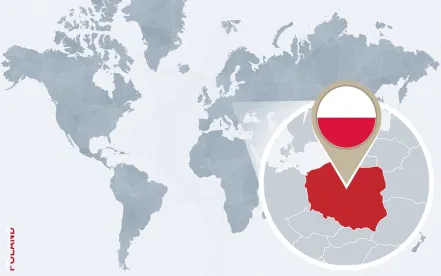The COVID-19 pandemic and the subsequent restrictions of face-to-face contacts have caused quite a stir among entrepreneurs, for instance when signing agreements and official documents. This has prompted many of them to seek all sorts of digital solutions in lieu of physical presence.
In the wake of the pandemic, signing paper documents, previously a dime a dozen, has been posing somewhat of a challenge, as it involves visiting a given institution (e.g. a public office or a bank) or meeting a business partner in person. By the same token, holding management board, supervisory board or shareholders meetings has encountered roadblocks. There are, however, certain substitute solutions for a handwritten signature. Some of them have already been around for some time, others have been introduced on the back of subsequent anti-crisis shields.
Electronic Declaration of Intent
In principle, under Polish law, declarations of intent can be made in any form. This means that any behaviour of an individual which sufficiently lets it be known what their intentions are is construed as a declaration of intent. This also applies to expressing one’s intent electronically (among other things, using email or the internet). An electronic declaration of intent is assumed to have been made once the addressee has received and reviewed it. For email communication, this will be the moment of saving a message on the addressee’s server so that they can review its contents.
Due to the pandemic, email and online declarations of intent have gained popularity both among entrepreneurs and individuals.
Qualified Electronic Signature
A qualified electronic signature is a solution enabling individuals to sign documents remotely. Legally, signing a document with a qualified electronic signature has the equivalent legal effect of signing a paper document by hand. Given the current situation, it is being increasingly used when signing commercial agreements, transaction documentation or making any sort of declaration.
The qualified electronic signature is considered safe as it is verified by way of a valid qualified certificate. Such signature is a progression of characters comprising a private certified user key which identifies the signatory. An individual using such electronic signature signs a document with a private key, accompanied by a qualified certificate, and sends the document to the addressee. Once received, the addressee will determine – based on the certificate – the author and verify whether there have been any changes to the document.
Such signature can be issued only by authorized entities meeting certain criteria and holding appropriate certification. The National Bank of Poland’s National Certification Centre maintains the list of Polish trust service providers (‘TSP’), including qualified signatures.
What may raise concerns when signing documents electronically are electronic signatures issued by non-Polish providers. In the EU, the issue is regulated by the Regulation (EU) of the European Parliament and of the Council of 23 July 2014 on electronic identification and trust services for electronic transactions in the internal market (“eIDAS”). This regulation has made it possible to use a single electronic identifier verified by EU Member States with qualified certificates. This means that qualified electronic signatures issued by Polish providers are equivalent to those issued elsewhere in the EU and vice versa. A qualified electronic signature may be used not only for concluding commercial agreements (especially remote-parties agreements), but also for signing other types of documents which, when signed, can be sent to a business partner or a public office, as well as for handling a range of official matters, signing financial documents or making legally required notifications, e.g. of beneficial owners.
Due to the progression of digitization and increased use of smartphones, certificate providers not only offer their services for computer software, but also enable mobile versions for signing documents with a qualified electronic signature.
Unfortunately, a qualified electronic signature still will not replace a physical signature when other particular forms arerequired, e.g. when signing notarial deeds.
Trusted Profile – ePUAP
A free of charge alternative to a qualified electronic signature is a trusted profile, used chiefly for contacting public administration and handling official matters without leaving one’s home. A trusted profile is the Electronic Platform for Public Administration Services (ePUAP in short). An individual who has a trusted profile may sign letters, forms or other notifications addressed electronically to public administration offices (however, it is impossible to sign agreements and the like). A trusted profile is valid for 3 years and it expires thereafter. Though prolonging or re-registering it is not a problem.
One of the first stages necessary for registering and using a trusted profile is setting up an account with the ePUAP platform providing the necessary identification data. The applicant must confirm their identity in order to use their trusted profile. To that end, the individual registering the ePUAP account should, within 14 days following registration of the account, visit a particular office (the so-called verifying facility) so as to confirm their trusted profile. It is also possible to register and confirm a trusted profile without leaving home – using one’s electronic banking service.
One of the requirements for registering an ePUAP trusted profile is holding a PESEL (Polish Resident Identification Number). In as much as this is not an issue for Polish nationals, non-Polish nationals who do not have one may find it rather problematic. That being the case, the process of obtaining a trusted profile will take longer, because prior to proceeding with the application, a non-Polish national will have to obtain a PESEL.
Temporary Trusted Profile
Because registering and confirming a trusted profile requires an individual to have electronic banking service access or to be able to visit an appropriate verifying facility, doing so may pose a problem for some, especially during the global COVID-19 pandemic. An alternative for such individuals may be to use a temporary trusted profile. It can be registered and confirmed electronically without leaving home. The applicant, as with the trusted profile, sets up an account with ePUAP and then holds a video call with an official in order to have their identity verified. The main difference between those types of profiles is the period for which they are made available. A temporary trusted profile may be used for a maximum of 3 months, whereupon it expires. Moreover, the temporary trusted profile only allows a limited range of activities. For instance, it is impossible to use it to apply for a new identity document.
Apart from a qualified electronic signature or a trusted profile, Polish law also provides for a number of other electronic facilities.
Electronic Facilities for Commercial Companies
Electronic means of communication are also used for holding shareholders meetings and adopting resolutions. Previously, using electronic means, such as a tele-meeting or a tele-conference, was only permissible if the articles of association expressly so provided, specifying the software to be used for that purpose. The pandemic and the related hindrances to companies’ operations have rendered it necessary to expand that rule. After the effective date of the amendment to the Act on Special Solutions toward Counteracting, Preventing and Fighting COVID-19, other Contagious Diseases and Related Crises and Certain other Acts (the so-called COVID-19 Special Act), participation via electronic means of communication is always allowed, unless otherwise provided for in the articles of association. To that end, the supervisory board or, in its absence, the shareholders are obliged to adopt, by way of a written resolution, the by-laws specifying in detail the principles of participating in meetings thus convened. Applying such procedure, however, does not relieve the company of the obligation to draft the meeting minutes.
Moreover, the amendment has introduced the possibility of participating in management board or supervisory board meetings via direct remote means of communication, unless otherwise provided for in the articles of association. Therefore, resolutions of certain corporate bodies may be adopted remotely using all types of electronic communicators.
Although the adverse effects of the pandemic will not have subsided for a long time, noteworthy is its influence on popularizing electronic communication in private and professional relationships. The restrictions in the wake of the pandemic have somewhat forced accelerated digitization on the legislator, business entities and private individuals alike. The electronic communication and remote management mechanisms described above will remain an integral element of many business operations and will, consequently, produce swifter and more efficient communication, expedite business decision-making and other business matters.





 />i
/>i
